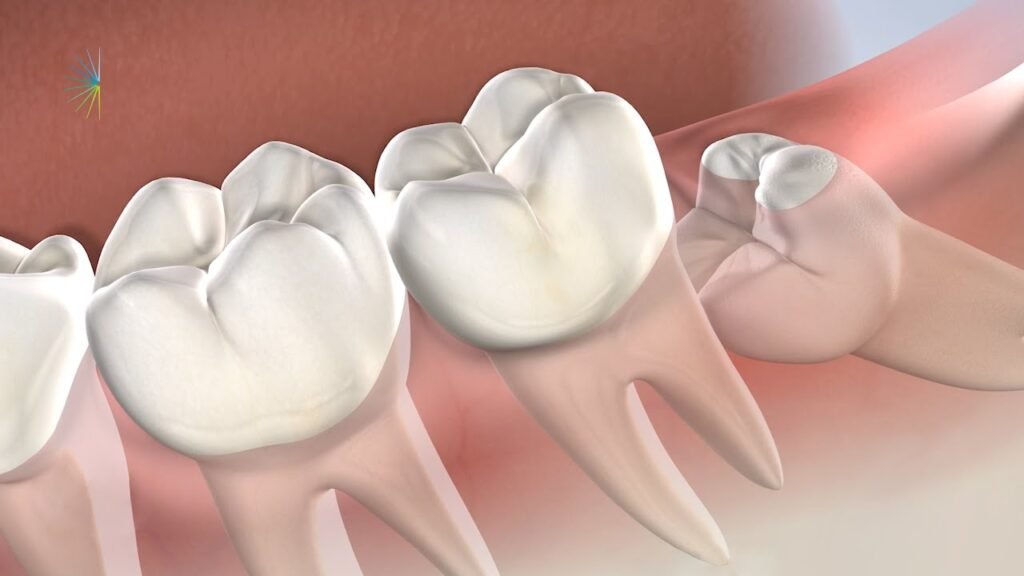Post-Wisdom Teeth Removal: When Can I Chew Again?

Are you wondering how long it will be until you can chew again after having your wisdom teeth removed? The recovery process can vary from person to person, but generally, you can expect to resume chewing within a few days to a week. In this article, we'll explore the factors that can affect your recovery time, as well as provide some tips for a smooth and speedy recovery after wisdom teeth removal.
Advantages
- Relief from pain and discomfort: After wisdom teeth removal, you will experience relief from the pain and discomfort caused by impacted or infected wisdom teeth.
- Improved oral health: Removing problematic wisdom teeth can improve your overall oral health by preventing future issues such as overcrowding or misalignment.
- Faster healing: By following post-operative instructions and taking care of your mouth, you can experience faster healing and return to normal activities sooner.
- Prevention of complications: Removing wisdom teeth can prevent potential complications such as infections, cysts, and damage to nearby teeth.
- Better long-term oral function: Once you have fully healed from the wisdom teeth removal, you can enjoy improved oral function and the ability to chew food without discomfort.
Disadvantages
- Pain and discomfort: After wisdom teeth removal, there can be significant pain and discomfort in the jaw area, making it difficult to chew properly.
- Swelling and inflammation: Swelling and inflammation around the extraction site can make it challenging to open your mouth fully and chew comfortably.
- Risk of infection: There is a risk of developing an infection after wisdom teeth removal, which can further delay your ability to chew normally.
- Restricted diet: Due to the pain and discomfort, you may need to follow a restricted diet of soft foods for a certain period of time, which can be inconvenient and limiting.
- Delayed healing: It may take several days or even weeks for the extraction site to fully heal, during which time you may have to be cautious with what you eat and how you chew to avoid complications.
How much time should I wait after wisdom teeth removal before chewing food?
After wisdom teeth removal, it is important to stick to a soft food diet for at least the first week. This includes easy-to-chew options like soups, eggs, mashed potatoes, and meatloaf. Avoiding hard, crunchy, or chewy foods for 2 weeks (or 8 weeks if lower wisdom teeth were extracted) will help promote healing and prevent any complications. So, while it may be tempting to indulge in your favorite crunchy snacks, it's best to give your mouth the time it needs to fully recover before returning to a regular diet.
How long will it take for the pain to stop when chewing after wisdom teeth removal?
After wisdom teeth removal, it is common for pain while chewing to subside within a few days, although some swelling and discomfort may persist for a week or more. To ease the discomfort and promote healing, it is recommended to use ice packs, stick to soft foods, and maintain oral hygiene by rinsing with salt water. These practices can help alleviate pain and reduce the risk of infection during the recovery period.
When is it safe to stop worrying about food getting stuck in wisdom teeth holes?
After getting your wisdom teeth removed, it's important to avoid hard, crunchy foods like chips, seeds, nuts, and popcorn until the wounds are fully healed, which can take up to 6 weeks. These foods have a tendency to get stuck in the wounds and can increase the risk of infection. It's best to plan ahead and stock up on softer, easier-to-eat foods to ensure a smooth recovery process.
Navigating the Road to Recovery: Post-Wisdom Teeth Removal
Navigating the road to recovery after wisdom teeth removal can be a challenging journey, but with proper care and attention, the healing process can be smooth and efficient. Following the guidelines provided by your dentist, such as taking prescribed medications, avoiding hard or crunchy foods, and maintaining good oral hygiene, will help speed up recovery and prevent complications. Remember to stay hydrated, get plenty of rest, and listen to your body's signals to ensure a successful healing process. With patience and diligence, you'll be back to your normal routine in no time.
Regaining Normalcy: Eating After Wisdom Teeth Removal
Regaining normalcy after wisdom teeth removal can be a daunting task, especially when it comes to eating. However, with proper care and patience, you can navigate this period smoothly. Opt for soft foods like yogurt, mashed potatoes, and smoothies to ease the discomfort and prevent any complications. It's crucial to avoid hot, spicy, or crunchy foods that can irritate the surgical sites. Stay hydrated and follow your dentist's instructions to ensure a speedy recovery and get back to enjoying your favorite meals in no time.
In summary, the timeline for when you can start chewing after wisdom teeth removal varies for each individual, but in general, it is recommended to wait at least a few days to a week before attempting to chew solid foods. It's important to follow your dentist's post-operative instructions and gradually introduce harder foods back into your diet to ensure a smooth and comfortable recovery. Remember to prioritize rest and gentle care for your mouth during this time to promote healing and minimize discomfort.